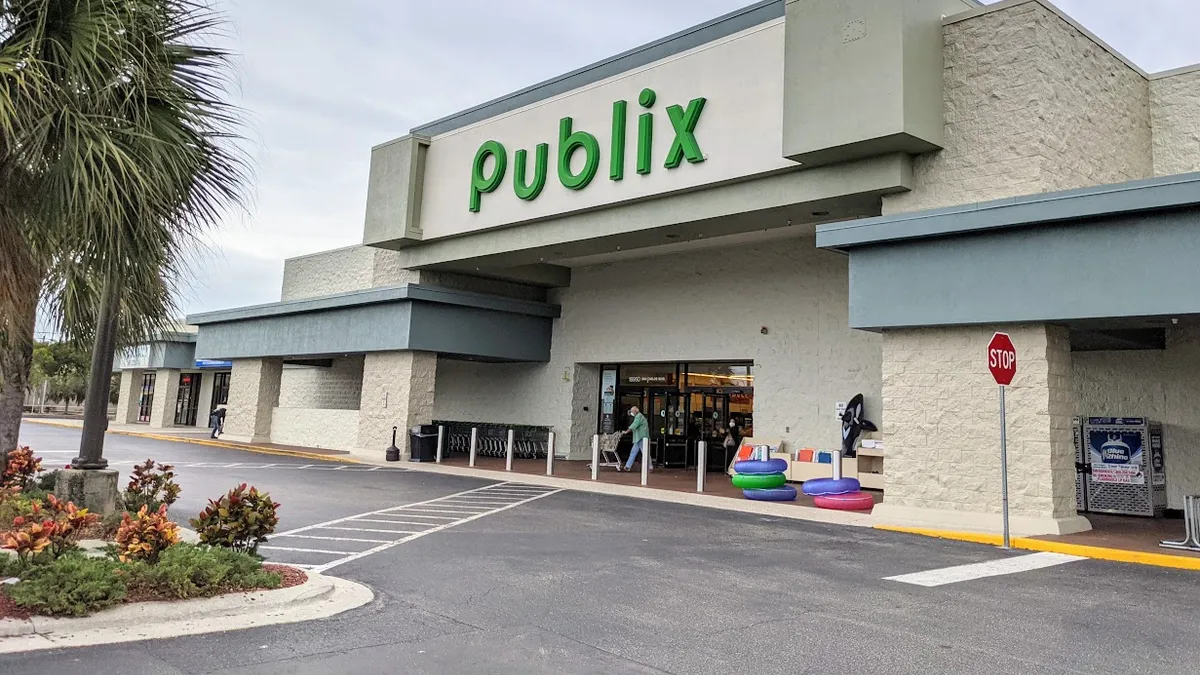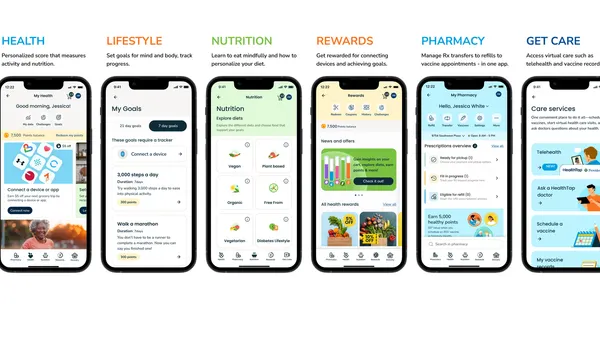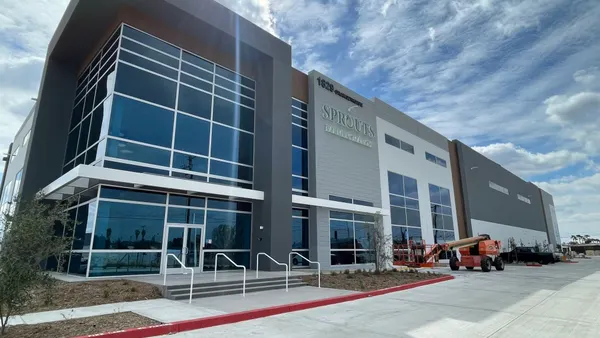UPDATE: Jan. 4, 2022: A Publix spokesperson confirmed the parental leave policy for eligible full- and part-time workers started on Jan. 1, 2022, noting the grocer frequently reviews its benefits to a offer a "comprehensive package to our associates." The spokesperson did not provide details on the amount of paid leave workers can take.
Dive Brief:
- Publix has reportedly started offering paid parental leave to eligible full- and part-time workers during the first year after their child is born or adopted.
- The grocery chain will pay a minimum of two weeks of a worker’s average hours and more depending on the worker’s time with the company and whether they are full- or part-time, with full-time workers able to get as much as six weeks of paid leave, according to a worker announcement dated Dec. 8 reported by online media site Florida Politics.
- The move could help Publix attract and retain young workers and comes at a time when parental leave is in the national spotlight as part of President Joe Biden's economic plan.
Dive Insight:
As the U.S. heads into its third year of the pandemic and the labor market continues to be tight, especially for retail workers, the grocery industry continues to face the dilemma of how to attract and retain workers.
Publix, which has more than 225,000 associates, confirmed the news of the parental leave policy to The Associated Press but did not provide details on the amount of paid time off. The grocer has not responded to Grocery Dive's request for comment and further details.
The company has long pointed to its track record of landing on Fortune listings as a "best employer," but has also come under fire for its leave policies, Florida Politics noted. An online petition started three years asking Publix to create a policy of 12 weeks of paid family and medical leave for all of its workers gained more than 6,000 signatures.
Private companies like Publix may be feeling pressure to address paid parental leave as it becomes a hot topic on the national level. President Biden's Build Back Better economic plan, which could come up for a vote in the Senate this month, offers four weeks paid family and emergency leave, down from the 12 weeks initially proposed. Globally, the average paid maternity leave is 29 weeks and the average paid paternity leave is 16 weeks, according to data from the World Policy Analysis Center at the University of California, Los Angeles, cited by the New York Times.
Several grocers have taken steps recently to make it easier for parents to continue working or return to the workforce, including Hy-Vee, which teamed up with WeeCare to provide eligible workers access to in-home providers in both rural and urban areas. Several grocers, including Kroger, New Seasons Market and United Natural Foods, Inc., have spotlighted their benefits for child care assistance in announcements about their hiring events or changes to benefits, in the hopes of attracting prospective workers.












